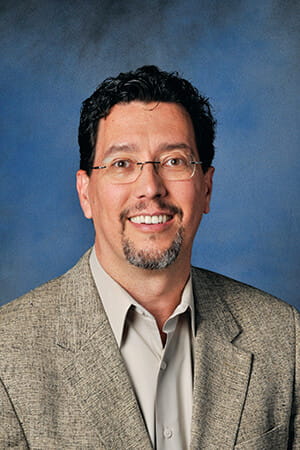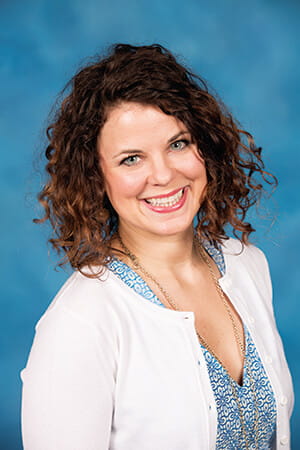In early March, a panel of Walden University faculty—experts in their fields of epidemiology, medicine, nursing, psychology, communications, and social and behavioral sciences—presented the interactive webinar “Global Response to, and Challenges of, the Novel Coronavirus and COVID-19.” Six hundred attendees, listening and watching from around the globe, heard the panel conclude COVID-19 would soon become a pandemic, an assessment validated by the World Health Organization’s declaration one week later.

“The panelists were spot on,” says Dr. William “Bill” Schulz, director of Walden’s Center for Social Change, who, with Dr. Savitri Dixon-Saxon, vice provost of the College of Social and Behavioral Sciences, was an executive sponsor. “And subsequently, those panelists have been out in the news, and being quoted on shows and in a number of magazines.”
The webinar, part of the popular Real-World Solutions to Real-World Problems series, embodies the center’s mission: “To be a connective hub that promotes, facilitates, and supports collaborative partnerships, action, research, and projects that lead to purposeful action for sustainable positive social change.”
“I like what Bill did with the conceptualization of the center, and that was to call it a hub,” says Dr. Iris Yob, faculty member emerita and contributing faculty member in The Richard W. Riley College of Education and Leadership. “So, it wasn’t a place that did all the work, but it was a place that could coordinate and direct and lead and suggest. And it was a place where things could connect—what was being done in psychology could connect with what was being done in health services.”
It was Yob’s research that paved the way for the center, Schulz says. Her work began in 2012, as Walden was preparing for its 2013 reaffirmation of accreditation from the Higher Learning Commission (HLC).
“The university had the option to choose whether it would do the kind of normal visit, or whether they would do what they called a special emphasis. The university decided it would go with a special emphasis, and they chose social change. I was asked to head up the work around that,” Yob says. “We did a lot of research, and we ended up with a curriculum guide and some other things. But among the many things we did was we … interviewed a lot of faculty, a lot of students, a lot of administrators. We did a survey as well. And one of the suggestions that kept coming through from faculty about what we should do next about social change was to have a social change center.”
Walden launched the center in 2017 with Schulz as interim director, and in 2018 he became founding director. Molly Raymond joined the team in 2019 as an associate director of community engagement for social change, and in 2020 assumed the role of associate director of the center. Together, they are working across Walden’s vast hub of talent and resources to further three strategic objectives: empower change makers, build community, and elevate social change outcomes across the university.
One of Schulz’s main responsibilities is working with academic leaders to strengthen and enhance the role of social change in the Walden curriculum.
“We really want to make sure that both our faculty and our students can have important dialogue about social change, and about the skills that our students are applying, so they can talk to the world and say, the skills I’m learning to be an effective systems thinker are helping me to understand the complexities of stubborn social change issues,” he says.

Raymond, who leads the center’s Global Days of Service program, says she is working with Schulz to build relationships across the university to find opportunities for thought leadership and social change collaborations.
“It’s very important for Bill and me to not necessarily always be thinking of new ways to have an impact, but to also build on existing efforts and see how we might elevate them, whether that means connecting to additional resources, providing insight and consultation, or building interpersonal connections.”
An important tool for bringing Walden’s diverse and far-flung populations together is through an online hub, the Walden Change Action Network (WeCAN). “At its core, WeCAN is a volunteer management system. But we have the opportunity to build interest groups and create organizational affiliations,” Raymond says.
One of the constituencies the center hopes to further engage is Walden alumni, Schulz says. “If there’s an alumnus who has a vision for something they’d like to do, and they reach out to the alumni team that’s building some sort of social change organization or event, we want to help support them in any way we can. And that’s kind of our vision, is to get an ecosystem, where we can support one another, inside the Walden community as well as outside.”
Other plans for this year include an updated website and a blog launch. Raymond says the blog will be titled Aspire, a nod to the book Aspire Toward the Highest: Bernie and Rita Turner and the Founding of Walden University. “We’re hoping this will be one of those opportunities to build our community by understanding and learning from many different stories of social change so that people have a better understanding of the range of what social change looks like.”
And the center’s objective-filled 2020 strategic framework includes a fourth objective, a stretch goal: increase external credibility as a changemaking institution.“If we start thinking about the future, there are two really large aspirational goals that we have shared with senior leadership, and our president, Dr. Ward Ulmer, is very supportive of them,” Schulz says. “We’d like to find a way, and it’s certainly possible from a legal standpoint, to have the center become a wholly owned 501(c)(3), a not-for-profit entity within Walden, that would allow us to work far more cooperatively on trends and other large-scale social change endeavors in the nonprofit world.”
The second is to earn the Carnegie Foundation’s Classification for Community Engagement. “It’s a rigorous process in which you show the impact you’re making as a university in the world … and that you’re not just exploring inwardly,” Schulz says. “There are no online universities that have ever applied for this, and we’re hoping to be the first.”
With its plans for 2020 and beyond, the Center for Social Change is a bustling hub of activity. “We’re doing what Walden does: living and thriving in the virtual space. And we want other people to be comfortable in doing that as well,” Schulz says. “The center’s here and potentially can support you anywhere in the world.”



